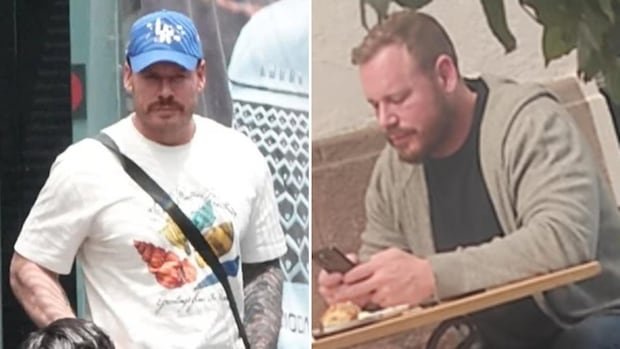Mexico has deployed specialized federal agents to track down Ryan Wedding, a Canadian fugitive, as reported by CBC News. The participation of these agents in the search for Wedding, who is listed as one of the FBI’s top 10 most-wanted fugitives, indicates a strengthening of ties between Mexican authorities and their American counterparts. Previously, U.S. officials had accused local authorities of aiding Wedding in evading capture.
Wedding, a former Canadian Olympian who competed in snowboarding at the 2002 Olympic Games in Utah, is alleged to be the mastermind behind a criminal organization worth $1 billion US. This enterprise is said to be involved in the regular smuggling of large quantities of cocaine, fentanyl, and methamphetamine across North America. Mexican authorities have also connected Wedding’s network to international arms trafficking.
Hailing from Thunder Bay, Ontario, Wedding, along with his associate Andrew Clark, another Canadian national, stands accused of orchestrating four murders in Ontario, including the wrongful killings of a visiting couple from India. The FBI has hinted that Wedding might be residing in Mexico under the protection of the Sinaloa cartel, previously led by notorious drug kingpin Joaquín “El Chapo” Guzmán.
Mexico’s FGR, a federal law enforcement entity under the country’s attorney general, has confirmed its active pursuit of Mr. Wedding. A representative of the FGR relayed this information to CBC News through the Mexican Embassy in Ottawa, opting not to be directly reachable, underscoring the confidential nature of the operation.
Tasked with spearheading the search for Wedding, who is 44 years old, is likely a task force that includes Interpol and the Mexican navy. These agencies were involved in the arrest of Clark last year in a high-profile operation at a restaurant in the Guadalajara region. Clark is currently awaiting trial in California, having been extradited by Mexico in February as part of a broader transfer of suspected cartel members.
Under pressure from the Trump administration, Mexican President Claudia Sheinbaum’s government has intensified efforts to combat major drug cartels, which are designated as terrorist organizations by the U.S. and Canada. Despite recent progress under Sheinbaum’s leadership, a U.S. State Department official, F. Cartwright Weiland, highlighted longstanding collusion between government officials and criminal elements in Mexico.
Weiland and the FBI have suggested that Wedding benefits from influential connections within Mexico, facilitating his evasion of capture. The U.S. State Department is offering a reward of up to $10 million US for any information leading to Wedding’s apprehension. Recent efforts by the FBI have focused on the region surrounding Mexico City, with a social media campaign soliciting tips from local residents. There are indications that Wedding may have undergone plastic surgery to alter his appearance.
Former DEA international operations chief Mike Vigil expressed confidence in eventually capturing Wedding, noting that his distinctive physical attributes, such as being six-foot-three, would make him stand out, especially in Mexico. Wedding had previously been incarcerated in the U.S. for involvement in a cocaine-smuggling conspiracy tied to a criminal network based in Vancouver. Since facing additional charges from the RCMP in 2015, he has been on the run.
In Los Angeles, Wedding was identified as the primary defendant among 16 individuals charged in Operation Giant Slalom, aimed at dismantling the “Wedding Drug Trafficking Organization.” The RCMP has acknowledged the continued activity of Wedding’s network, while U.S. prosecutors have warned of his potential access to a network of hired assassins while evading capture.
Two of Wedding’s alleged associates, Gurpreet Singh and Hardeep Ratte, are currently contesting extradition to the U.S. in a Toronto court. They face accusations of coordinating the transportation of bulk cocaine shipments from California to Canada on behalf of Wedding’s organization. Singh’s legal representative has raised concerns about the circumstances of his client’s kidnapping and the evidence collected in Canada for the U.S. case, including recordings of key meetings involving Singh, Ratte, and an FBI informant.
The hearing in Ontario Superior Court also addressed the reported assassination of the informant earlier this year in Colombia, raising uncertainties about the progression of the case. U.S. prosecutors have stated that the informant collaborated with Wedding in drug trafficking for over a decade and had agreed to assist investigators in 2023 in exchange for leniency. Despite uncertainties surrounding the informant’s fate, legal proceedings continue regarding Wedding and his alleged accomplices.

